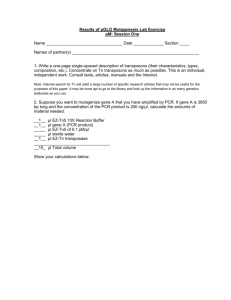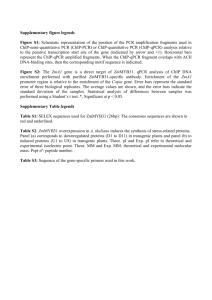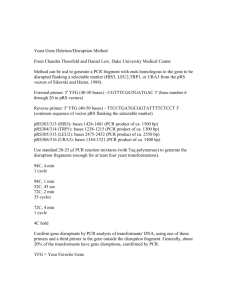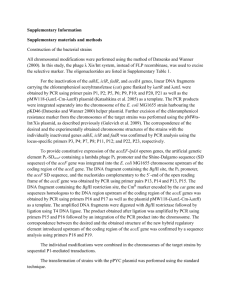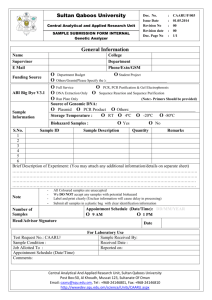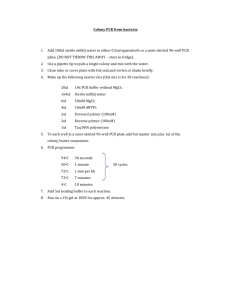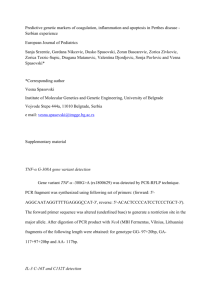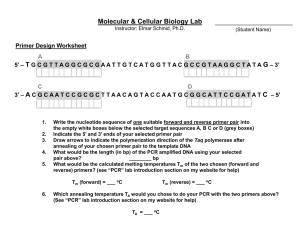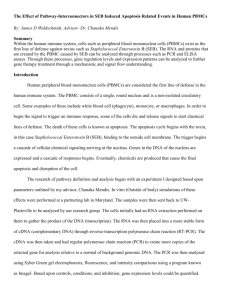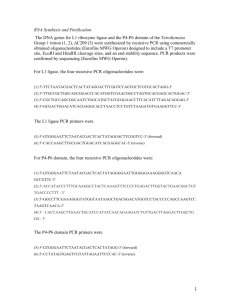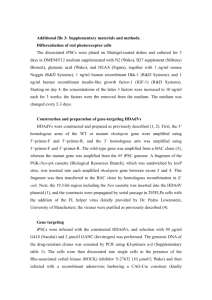DEVELOPMENT OF FAST PCR SYSTEM FOR AFLR GENE
advertisement
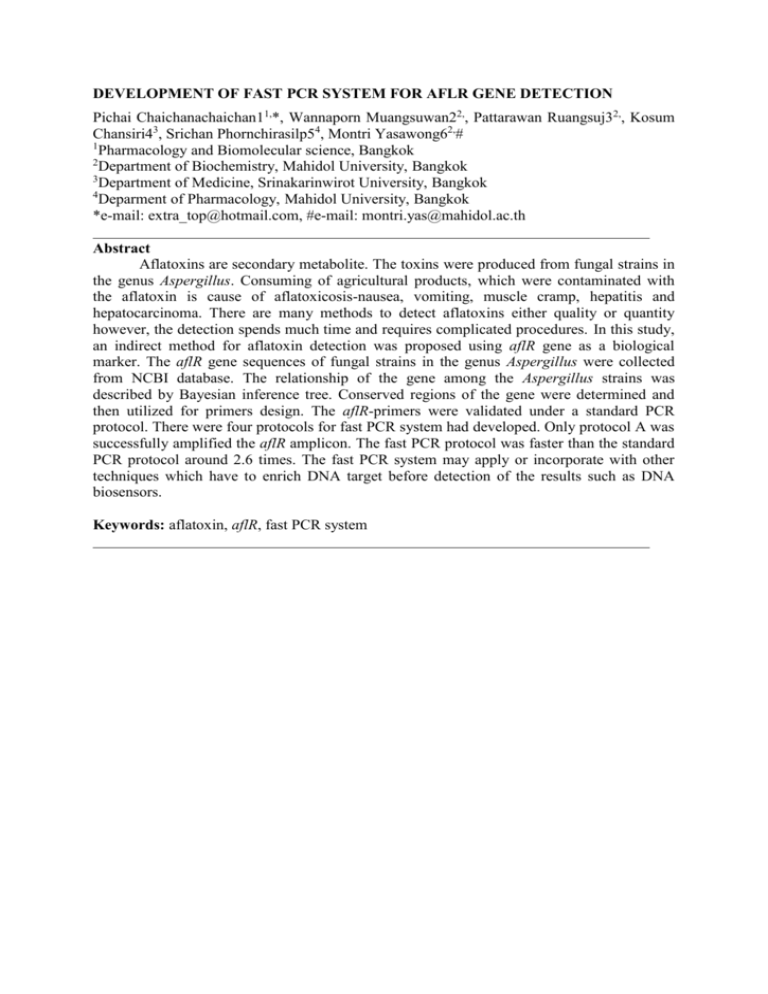
DEVELOPMENT OF FAST PCR SYSTEM FOR AFLR GENE DETECTION Pichai Chaichanachaichan11,*, Wannaporn Muangsuwan22,, Pattarawan Ruangsuj32,, Kosum Chansiri43, Srichan Phornchirasilp54, Montri Yasawong62,# 1 Pharmacology and Biomolecular science, Bangkok 2 Department of Biochemistry, Mahidol University, Bangkok 3 Department of Medicine, Srinakarinwirot University, Bangkok 4 Deparment of Pharmacology, Mahidol University, Bangkok *e-mail: extra_top@hotmail.com, #e-mail: montri.yas@mahidol.ac.th Abstract Aflatoxins are secondary metabolite. The toxins were produced from fungal strains in the genus Aspergillus. Consuming of agricultural products, which were contaminated with the aflatoxin is cause of aflatoxicosis-nausea, vomiting, muscle cramp, hepatitis and hepatocarcinoma. There are many methods to detect aflatoxins either quality or quantity however, the detection spends much time and requires complicated procedures. In this study, an indirect method for aflatoxin detection was proposed using aflR gene as a biological marker. The aflR gene sequences of fungal strains in the genus Aspergillus were collected from NCBI database. The relationship of the gene among the Aspergillus strains was described by Bayesian inference tree. Conserved regions of the gene were determined and then utilized for primers design. The aflR-primers were validated under a standard PCR protocol. There were four protocols for fast PCR system had developed. Only protocol A was successfully amplified the aflR amplicon. The fast PCR protocol was faster than the standard PCR protocol around 2.6 times. The fast PCR system may apply or incorporate with other techniques which have to enrich DNA target before detection of the results such as DNA biosensors. Keywords: aflatoxin, aflR, fast PCR system
